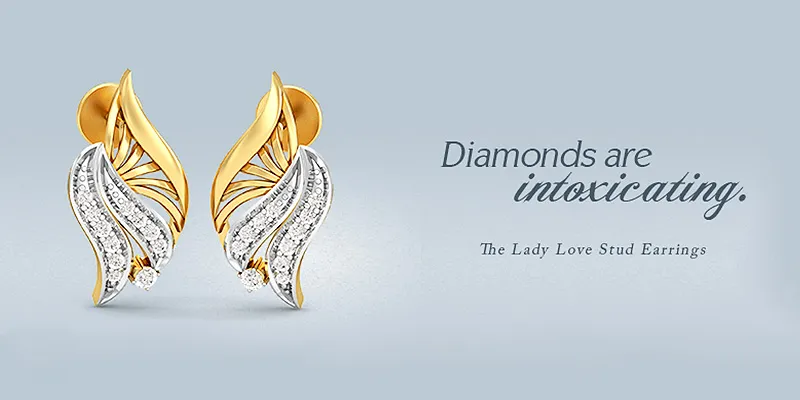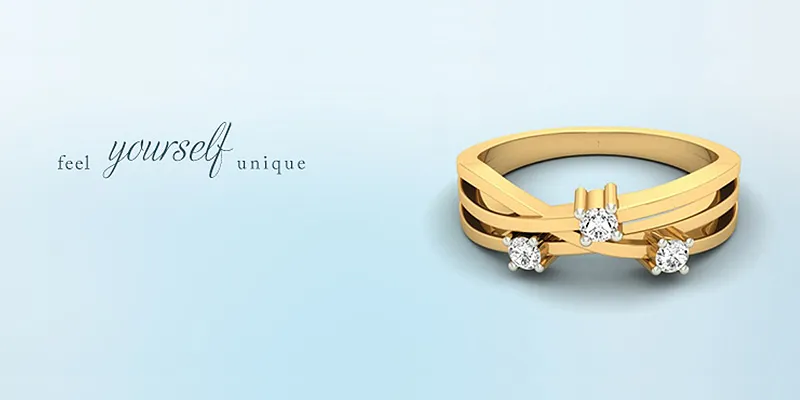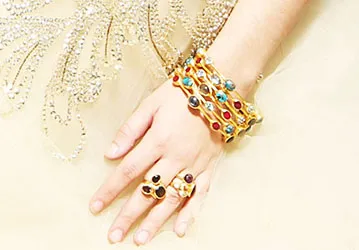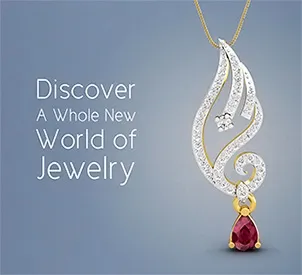Jewellery etailers see gold in second tier cities
With the e-commerce industry heading for exponential growth, especially with apparels, it was only a matter of time before the jewellery market joined the party.

Much has been written about Bluestone and Caratlane and how they are developing the highly opaque world of high-end jewellery online and building consumer confidence, much like Jabong and Myntra did in the early days of online fashion. But, the really happening space in online jewellery is not the precious metals section. It is the imitation jewellery space that is attracting startups.
In 2013, the domestic gems and jewellery market was roughly estimated at Rs.1.2 lakh crore, out of which less than 1% is sold online, according to a study by PwC. The major chunk of online jewellery transactions come from imitation jewellery space. The current market size of imitation jewellery in India is pegged around Rs. 8000 crore, out of which online retail contributes 2% (approx Rs 150-180 crore).
Startups in online jewellery space and their growth
Close to a dozen startups, including Juvalia and You, Youshine, Voyolla and Vezoora among several others sell imitation jewellery online. “The transaction value certainly went up as familiarity with brand increased over the years. In terms of business growth from online channel, Juvalia and You registered 2X growth in contrast of previous year,” said Chaitanya Aggarwal, CEO, Juvalia and You.

Gurgaon-based Youshine saw 200% growth in business over last year. “Last year, we were shipping 1,500-1,600 orders on a monthly basis but March 2014 onwards we are shipping more than 3,000 orders on a monthly basis,” added Ashish Sood, CEO, Youshine.
Launched in May this year, Eristona.com processes 200-250 orders a month. “We see a steady and gradual increase in orders on a monthly basis, revealed Shagun Chadha, Founder of Eristona.
Jaipur-based Kuber Box services close to 200 orders on a monthly basis with an average box size of 9,000. “We also sell on Flipkart & Snapdeal, which again brings us good numbers especially from smaller cities like Jalandhar, Haldia, Wardha and Raigarh and boosts reach in remote areas,” said Sourav Lodha, Founder of Kuber Box. The company deals in precious metals and sells maximum number of nose pins.
Accessibility, fashion sense and Bollywood are major drivers
For consumers, these startups have brought the latest jewellery designs at their doorstep. “With many etailers selling latest imitation jewellery I don’t face accessibility issue. Now I can buy jewellery designs worn by my favourite soap-opera stars. Earlier spotting such design in offline store was a big task,” said Anu Priya, a housewife, in Patna.

On the other hand, startups in this space thank Bollywood and increasing fashion sense among girls and women for their business growth. “Our targeted audience is very fashion-oriented and strongly influenced by Bollywood. Since our products are trendy and worn by celebrities, it's easy for our customer to identify with Youshine,” pointed out Ashish.
How jewellery e-tailing is different from other categories
E-tailing jewellery is very similar to e-tailing apparels as they both require a website that gives details regarding the product and its versatility. High quality images of the product on a model shows how it actually looks when worn, which is essential for the customer to get a real feel of the product.
“We also feel giving styling tips and details regarding current trends are extremely important so that our customer also knows how they could potentially wear the piece that they are buying,” revealed Shagun.
Selling jewellery online is difficult and hence far more complicated than selling electronics. Electronics will always remain the same or very similar, whereas jewellery depends on the latest trends, seasons and runway looks. “One must keep up with fashion forecasts in order to give the customer what they want, when they want it,” cautioned Shagun.
Being the category that it is, people are naturally apprehensive of buying them online. “If the item value is bigger, that adds another barrier. Therefore, the focus has been on sub Rs 15,000 jewellery and more so on sub Rs 8,000 jewellery which for customers becomes ‘getting-to-experience-online-jewellery-shopping’. People are comfortable spending up to Rs 11,000-12,000 on jewellery online,” said Sourav.
Tier II & III cities will drive scale for jewellery e-tailers

Unlike other categories which see more than 50% orders coming from Tier II & III cities, jewellery e-tailing has low penetration in smaller cities. Most of the imitation jewellery purchasing in smaller cities happen via hawkers and small stores.
For Eristona, Youshine, and Kuber Box around 15-20% of the orders come from non-metro cities. Challenges in precious jewellery e-commerce are aplenty. “Logistics, insurance, buyer refusing delivery, returns logistics and payments -- every aspect is a challenge in itself,” pointed out Sourav.
Outlook for jewellery etailing
With internet penetration and improved connectivity in rural India, jewellery e-tailing has a bright future. “Smaller cities will drive scale for jewellery e-tailers. Women in smaller cities are deprived of fashion and trendy jewellery and this opens up a huge opportunity for startups in this space,” added Chaitanya.
Jewellery entailing will witness exponential growth as bandwidth improves and more Indians get comfortable with e-commerce. “The ‘impulse buy’ nature of fashion and jewellery coupled with COD and easy return policies will help further growth of this category in the online space,” said Ashish.
The space will also see fierce competition and a few consolidations can’t be ruled out. “When we first begun Eristona, there were only a handful of startups selling artificial jewellery, now even the bigger players of the e-tailing industry are getting their hands on this segment,” said Shagun.
By 2015, the competition will not only be driven by prices, but by the styles, designs, services and after-sales services offered to customers.







